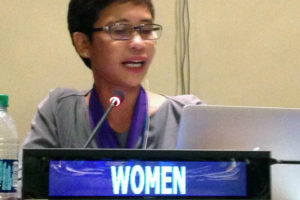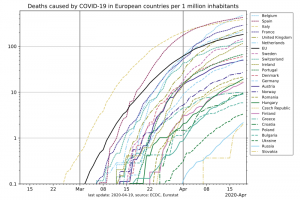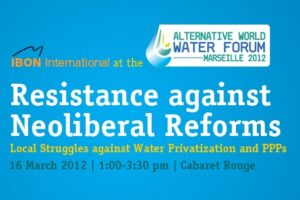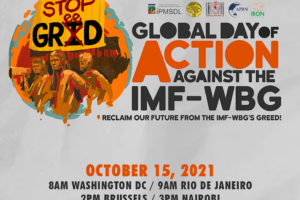The following intervention was delivered by Rodolfo Lahoy, Policy, Communications & Training Team Head of IBON International, on behalf of the Civil Society Financing for Development Group at an official side-event at the United Nations High-level Political Forum on 13 June 2022. The side-event, titled “Accelerating the 2030 Agenda for Sustainable Development Implementation – Addressing Systemic Barriers, Recovery Gaps and Strengthening People’s Participation”, was organised by the Major Groups and Other Stakeholders and the UN Department of Economic and Social Affairs.
It has been said that with the pandemic, we are in the same storm but not in the same boat. Indeed we peoples, especially in the global South, face the ongoing storm—of pandemic, fascism, war, ecological, food and debt crisis—with a smaller, less secure boat. One that has cracks due to the corporatisation of development, and the erosion of democratic spaces and rights. We are concerned that some of the proposals being posed in financing would further sink our boats by facilitating a recovery that is corporate in character.
We hear from some quarters about so-called “innovative” private financing, such as Sustainable Development Goal (SDG) bonds, Environmental, Social, and Governance (ESG) investing, or blended finance. However, ESG investing “doesn’t go beyond financial returns”; blended finance, which uses already scarce aid to attract private capital, have “unclear” development outcomes. SDG bonds create new debt, and rely on financial markets at a time when these are extremely unstable. So, how can these be solutions if their positive outcomes for workers, rural people, women, among others are unclear, and just greenwash wealth concentration?
For us, solutions mean strengthening public finance, democratic rights, and spaces. First, we should downgrade the pre-pandemic and discredited idea that big private finance will play a major role to finance sustainable development. We should have the ambition to end policies that are incoherent with rights and sustainable development—these include policies of international financial institutions made today in the name of recovery: austerity, privatisation, deregulation, liberalisation, and the policy bias for private capital which now takes on a greenwashed veil.
We hear about so-called “innovative” private financing for development schemes. How can these be solutions if their positive outcomes for workers, rural people, women, among others are unclear, and just greenwash wealth concentration?
Second, we need real ambition for public finance options to expand healthcare spending, social services, and implementing sustainable national industrialisation and agriculture in the global South. Major debt cancellations are crucial instead of mere limited payment suspensions, and an international mechanism to address debt problems against the power of creditors and the Paris Club. To support developing countries’ pandemic responses and development, developed countries should fulfill and even go beyond the 0.7% Gross National Income target for Official Development Assistance through unconditional grants. It is also imperative to review tax incentives for transnational corporations (TNCs), implement progressive taxation on wealth and TNCs, and establish a United Nations tax body that will curb illicit financial flows. Investor-state dispute settlements which reinforce corporate power and violate people’s sovereignty should be stopped and removed from treaties. We need a real Trade-Related Aspects of Intellectual Property Rights (TRIPS) waiver, and be open even to ending TRIPS itself to support developing countries’ capacities for vaccine production, among others. These are new norms that could be best put forward in a Fourth UN Financing for Development Conference.
Third, we need decisive action and political will to strengthen democratic spaces. We can have no real partnerships without the people most affected by development policies. In countries, this requires ending repressive laws and militarisation made in the name of “anti-terror,” “national security,” and even pandemic response—as in the Philippines, India, and many other countries. We need to put pressure on states to stop the attacks against unionists, land and environmental rights defenders, Indigenous Peoples, women’s rights activists, and other marginalised groups; perpetrators should be held to account. Instead, peoples’ initiatives to assert their sovereignty in development planning need to be supported. We need to democratise development processes to facilitate peoples’ and their organisations’ voices—since these are economic governance processes that would in the end affect them.
To conclude, we as peoples need to continue asserting our rights and sovereignty, carving our space, and strengthening our solidarity—because silencing us and our demands for social and climate justice, economic democracy, and social transformation is precisely the objective of repression. We need to overcome this. We need to build a new development paradigm, that allows us to get out of the storm created by the profit-oriented economic system that has ravaged prospects for sustainable development. #



